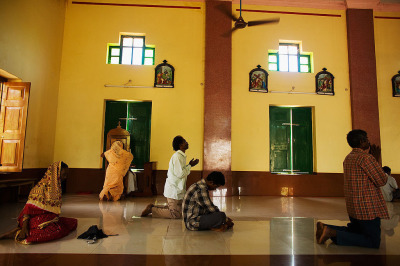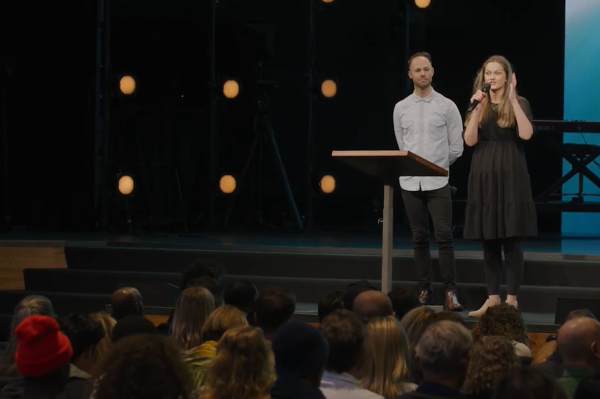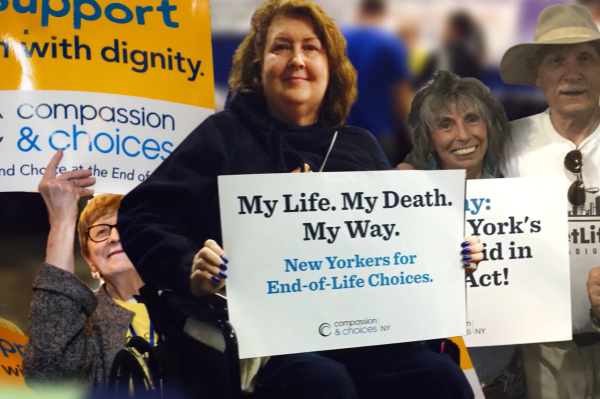How India’s anti-conversion laws selectively deny freedom of religion for Indians

India’s famed Emperor Ashoka was an ancient convert from Hinduism to Buddhism. He demonstrated that a person is NOT forced by others to convert from one religion to another. Today, “religious conversions are forced,” is the flawed premise of all anti-conversion laws of India. Who could have forced mighty Emperor Ashoka to change his religion? The Emperor’s famous religious conversion was his choice.
His accomplishments are recognized both inside and outside India. In his book, The Outline of History (1920), H.G. Wells wrote, "Amidst the tens of thousands of names of monarchs that crowd the columns of history, their majesties and graciousnesses and serenities and royal highnesses and the like, the name of Ashoka shines, and shines, almost alone, a star.”
India is proud of its celebrated religious convert
Emperor Ashoka’s famous religious conversion, which occurred about 2400 years ago, is proudly recorded in Indian history books and is taught in every Indian school.
Between 268-332 BC, Ashoka the Great, an Emperor of the Maurya Dynasty, ruled almost the entire Indian subcontinent, except parts of the southernmost states of India. After a successful but bloody victory in the Kalinga (Odisha/Orissa) war in the year 260 BC, the realization of the extent of cruelty and deaths caused by this historic war convinced the emperor to convert to Buddhism and to embrace an extreme form of non-violence or “ahimsa.” He did not stop there; he sent Buddhist monks to places in and around India to spread non-violence and Buddhism. He remains a highly revered Indian ruler.
Legal opinion on India’s anti-conversion laws
Mr. Alok Prassana Kumar, a legal scholar, in his article “Myth and rhetoric: Dissecting the anti-conversion law,” which appeared in the Indian newspaper Deccan Herald (Dec. 19, 2021), asked this pertinent question to lawmakers aggressively pushing for anti-conversion laws in India: “Constitutionally, one can choose one’s religion or choose none at any point of time in one’s life. The Constitution doesn’t say one is free to practice only one’s birth religion (or worse, only one state-mandated religion). So where do ‘anti-conversion laws’ such as the one currently being contemplated by the Karnataka [one of the Indian states] government fit in?”
He implies India’s anti-conversion laws are making the Hindu birth religion a de facto state-mandated religion; such a mandate is not consistent with India’s constitution because it has no state-mandated religion.
Further, in the same article, Mr. Prassana Kumar addressed a spurious claim behind these anti-conversion laws — the claim of “forced conversions” is the imagined excuse for the anti-conversion laws. He said, “The people alleged to have been ‘forcibly converted’, if at all, turned out to have converted voluntarily. Yet the claim is vociferously and vigorously repeated and never substantiated. The new attempt is to stretch it to include anyone who says that their religion is better than others — a leap of logic, which if applied elsewhere would make every advertiser a fraud and every politician guilty of a corrupt practice.”
We must learn to look past this “forced conversions” strawman that props up anti-conversion laws before we can truly understand the deeper cultural issues that lie hidden behind India’s anti-conversion laws.
How the anti-conversion laws work
Krittivas Mukherjee noted this intrusive aspect of the anti-conversion laws in the article, Indian Hindu outcasts convert to end social stigmas: “Under some of the new laws, anyone planning to leave the Hindu fold must obtain certificates from officials and affidavits from courts saying they were converting out of free will and not by inducements.”
Thus, anti-conversion laws require a Hindu convert to report the details of his/her conversion to government officials, who are invariably upper-caste elites or one of their sympathizers. This demand of the law on converts has the potential to be extremely intimidating to the new convert when he or she is a member of a non-elite, low caste, or outcast community. As intended, this requirement dissuades conversion and prevents the exercise of religious freedom for fear of the consequences of reporting their conversion to upper-caste elites in positions of authority in the police force, and the court system, who are required by anti-conversion laws to record each and every conversion.
Additionally, advance notice of conversion prior to the decision/event is another requirement under Indian Anti-Conversion Laws. Aneesha Mathur, in her article, “Anti-conversion laws in India: How states deal with religious conversions,” (India Today, Dec. 23, 2020) said, “In all other states [with anti-conversion laws], advance notice by the priest or ‘religious convertor’ as well as the converted person is required. Uttar Pradesh [one of the Indian states] has the strictest provisions, requiring a person who wishes to undergo a conversion to give a 60-day notice to the district authorities. The priest is required to give the notice one month in advance.”
Alas, in some Indian states, India’s constitutionally-granted freedom of religion has been distorted to demand a “60-day notice” to authorities before a Hindu could change his/her faith!
India is run by its elites
Consider the NBC News report, “Harvard adds caste bias protections for graduate student workers,” (Dec. 2, 2021), where Shakshi Venkatraman noted, “Harvard University is the latest U.S. school to add measures protecting caste-oppressed students...” She explained it saying, “Those born into lower castes, known as Dalits in India's deeply rooted hierarchies, have faced violence and oppression on the subcontinent for thousands of years.”
India was always run and controlled by its elites. Hindu religion identifies who the elites are and who are not. India’s elites dislike the conversion of the non-elite lower caste and outcast Hindus to other religions. Given their disproportionate influence over policymaking, elites have enacted “anti-conversion laws” in ten Indian states to prevent the disproportionate religious conversions of non-elite Hindus and outcastes.
Anti-conversion laws penalize only those who leave Hinduism, their birth religion. Thus, India’s anti-conversion laws are discriminatory by selectively hitting hard ONLY those who convert out of Hinduism.
An unconstitutional remedy for hurt feelings?
A legitimate question for Indians to ask is: “Why is India selectively depriving constitutionally granted religious freedom from her non-elite, low caste, or poor Hindu citizens?”
Right now, anti-conversion laws are placating elitist Hindus, whose feelings are hurt because some Hindus are converting to another religion — this is not an adequate reason to peel away the constitutionally granted rights of some Hindus, who want to leave the Hindu faith and take on another faith such as the Christian faith.
Why are Hindus converting to the Christian faith?
A few of the converts to the Christian faith are from privileged upper castes and elites, but most are not. Poor, non-elite Hindus, who make up the lower castes or from outside the caste system tend to pay closer attention to the claims of Jesus Christ in the Bible.
In the article, “Indian Hindu outcasts convert to end social stigmas” (Jan. 19, 2007), Krittivas Mukherjee writes: “The ancient caste system has persisted in India – mostly in villages – despite the country’s spectacular economic success and exposure to Western culture...” Further, Mukherjee notes, “For millions of low-caste Hindus...a switch in their faith is not so much a spiritual choice as a matter of dignity.” Anti-conversion laws are intended to put an end to this.
What would Emperor Ashoka say about India today?
If Emperor Ashoka came to life in India, he would be disappointed and embarrassed by the anti-conversion laws and the fear it generates among Hindus, who voluntarily seek religious conversion.
Further, non-violence-promoting Emperor Ashoka may shed tears upon seeing India listed in Open Doors’ annual list, The 10 Most Dangerous Places for Christians; India’s inclusion in this humiliating Top 10 list is partly attributed to the anti-conversion laws of India, which have contributed to violence against religious converts. India’s inclusion in this ignominious Top 10 amounts to a betrayal of its famous non-violent Emperor Ashoka.
India could dump its anti-conversion laws and most likely exit this humbling list.
Paul Swamidass, PhD, is Professor Emeritus, Harbert College of Business, Auburn University, Auburn, AL, USA. After three decades of teaching and publishing as a business management professor in different universities, he retired from Auburn University in 2016. Occasionally, he teaches Biblical Leadership for Kerusso Institute for Global Leadership. His newest book is Greater Things: The Qualifications of a Biblical Leader, Vide Press, 2020. He and his wife, Nimmi, worship at Redwood Chapel Community Church, Castro Valley, CA.





















